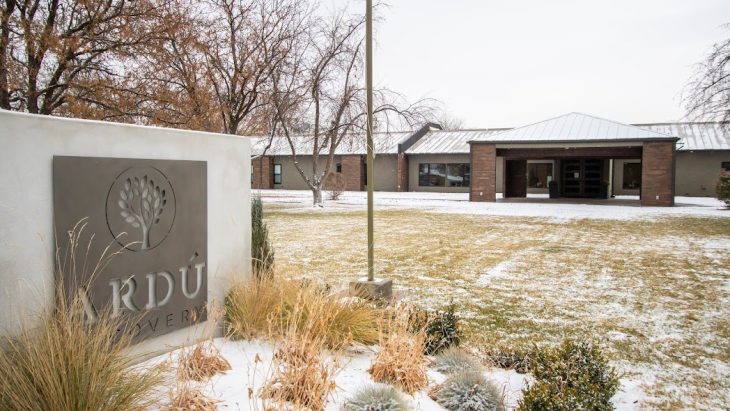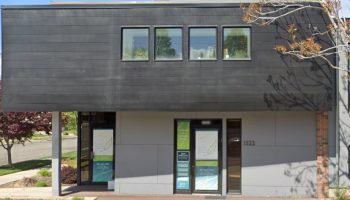Ardú Recovery Center

About Ardú Recovery Center
If you’re looking for a full service substance use and mental health disorder facility in Provo, Utah, you can try Ardú Recovery Center. You’ll be treated in a beautiful facility surrounded by nature with the Wasatch Mountains towering on one side and the sparkling Utah Lake on the other.
They offer different types of detox, such as a medically assisted and holistic detox. The medication assisted route uses medicines to take away the discomfort of withdrawals. Holistic detox focuses on repairing your mind, body and spirit by natural means.
What stands out to me is their full range of experiential therapies to complement the traditional counseling they give. Oxygen therapy reduces stress and revives your mind and energy. They offer IV amino acid therapy which delivers much needed vitamins and electrolytes to heal and restore the damage caused by substances.
Experience the deep relaxation of a serenity float spa, or take a sound bath – a calming auditory experience of vibrations that will refresh you. Spend time in a sweat lodge or try the VibroAcoustic lounge, designed to help you meditate. Their floor plan allows for plenty of natural light, and the warm colors can enhance a relaxed atmosphere to help you unwind.
You’ll get plenty of opportunity for exercise, which brings healing to your body and mind. Provo is an ideal place as a bike friendly city with trails and bike lanes. If you love hiking and rock climbing, Rock Canyon is for you.
Many people find expressing themselves creatively helps them to process emotions and get in touch with themselves. Art therapy will be your safe place. Provo is picture perfect for those who are passionate about outdoor photography. As you become free from addiction, you can fall in love with life again in this beautiful city.
| Levels of Care | Detox Service Setting | Programs | Payment Options | ||
|---|---|---|---|---|---|
|
Inpatient and residential programs provide round-the-clock medical and emotional support as you live at the treatment facility. This level of care may be recommended if you have severe addictions or mental health conditions since it removes outside distractions and allows you to focus solely on therapy. |
Dual diagnosis programs address substance use disorders and co-occurring mental health conditions simultaneously. This integrated approach to care improves the likelihood of long term recovery and stability by addressing the root causes of addiction. |
||||
|
Inpatient detox occurs in a dedicated treatment facility. You’ll live there around the clock and receive intensive medical support and supervision to help manage your withdrawal symptoms. It is suitable for individuals with moderate to severe addictions as it ensures a stable detox environment. |
|||||
|
Adult programs address the substance use and life challenges specific to adults. Therapists can deliver sessions in individual, group and family settings. Services often include job support and life skills training in a structured environment. |
Cognitive behavioral therapy focuses on changing harmful thought patterns and behaviors associated with addiction. You’ll learn healthier coping mechanisms by identifying and replacing negative thoughts. This improves your emotional resilience and decreases your relapse potential. |
EMDR stands for eye movement desensitization and reprocessing therapy. It helps you process traumatic memories that may underlie addiction. You’ll learn how to reduce emotional distress and begin healing from past events. This makes it effective for trauma related addiction causes. |
Men's programs address substance use while also considering the social pressures, family roles and mental health concerns that are specific to men. You’ll learn healthy coping mechanisms as you build emotional resilience and develop communication skills. |
Women's programs offer a safe and supportive space to focus on gender specific issues such as trauma, family roles and mental health conditions. Therapists tailor the sessions to address women's needs and foster empowerment in a healing and nurturing environment. |
Young adult programs are designed for individuals who are transitioning into adulthood. Topics of discussion typically include identity, independence and peer relationships. Providers may also offer life skills training and career support. |
|
Private Insurance
|
Self Pay
|
Levels of Care
Inpatient and residential programs provide round-the-clock medical and emotional support as you live at the treatment facility. This level of care may be recommended if you have severe addictions or mental health conditions since it removes outside distractions and allows you to focus solely on therapy.
Dual diagnosis programs address substance use disorders and co-occurring mental health conditions simultaneously. This integrated approach to care improves the likelihood of long term recovery and stability by addressing the root causes of addiction.
Detox Service Setting
Inpatient detox occurs in a dedicated treatment facility. You’ll live there around the clock and receive intensive medical support and supervision to help manage your withdrawal symptoms. It is suitable for individuals with moderate to severe addictions as it ensures a stable detox environment.
Programs
Adult programs address the substance use and life challenges specific to adults. Therapists can deliver sessions in individual, group and family settings. Services often include job support and life skills training in a structured environment.
Cognitive behavioral therapy focuses on changing harmful thought patterns and behaviors associated with addiction. You’ll learn healthier coping mechanisms by identifying and replacing negative thoughts. This improves your emotional resilience and decreases your relapse potential.
EMDR stands for eye movement desensitization and reprocessing therapy. It helps you process traumatic memories that may underlie addiction. You’ll learn how to reduce emotional distress and begin healing from past events. This makes it effective for trauma related addiction causes.
Men's programs address substance use while also considering the social pressures, family roles and mental health concerns that are specific to men. You’ll learn healthy coping mechanisms as you build emotional resilience and develop communication skills.
Women's programs offer a safe and supportive space to focus on gender specific issues such as trauma, family roles and mental health conditions. Therapists tailor the sessions to address women's needs and foster empowerment in a healing and nurturing environment.
Young adult programs are designed for individuals who are transitioning into adulthood. Topics of discussion typically include identity, independence and peer relationships. Providers may also offer life skills training and career support.
Amenities
Accreditations
Contact

SEO writer by day and author by night, Dianne has written over a dozen novels and hundreds of articles. Her goal for both fiction and content creation is the same: to see people set free to live their best lives. Writing about addiction recovery is a natural extension of her heart – for people to live lives that are whole, happy and fulfilled.

Peter W.Y. Lee is a historian with a focus in American Cold War culture. He has examined how popular culture has served as a coping mechanism for the challenges and changes impacting American society throughout the twentieth century.




